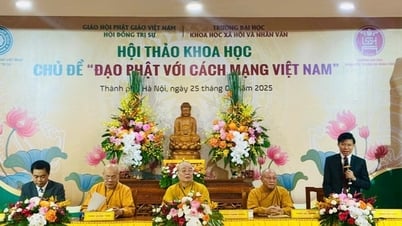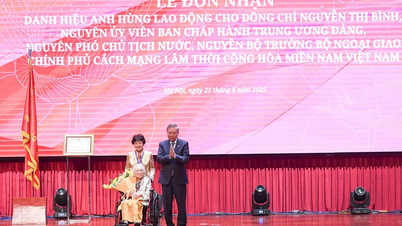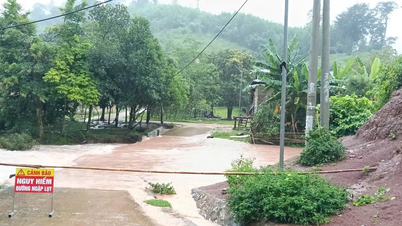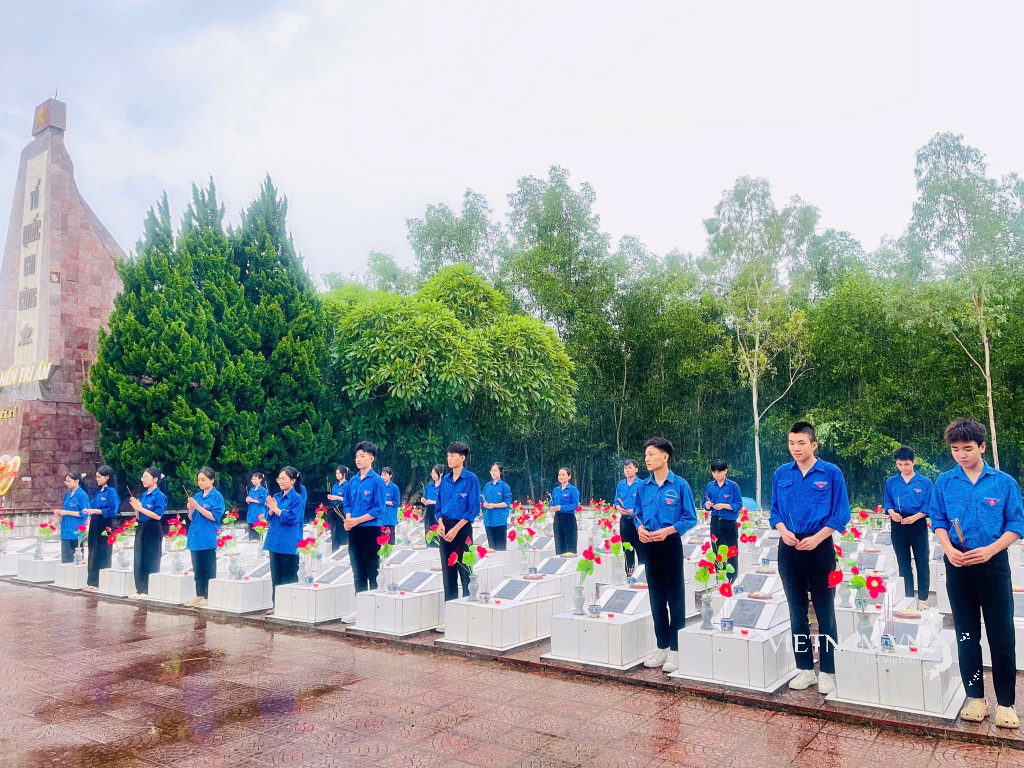To create clear changes in the preservation and promotion of heritage values, experts in the cultural field continue to have many contributions and opinions, with the hope that heritage will be increasingly honored and shine in contemporary life.
Associate Professor, Dr. Do Van Tru, Chairman of Vietnam Cultural Heritage Association:
New legal corridor for conservation work

Cultural heritage in general and national treasures in particular are invaluable assets of the nation, which need to be managed and protected under special conditions. In recent years, the Ministry of Culture, Sports and Tourism, as the agency managing and supervising heritage conservation, has made great efforts in directing localities; however, the management work still has many loopholes. In many places, unfortunate heritage violations still occur. The recent incident involving the throne in Hue is a painful example, showing that the management and protection of heritage in many localities is still lax and ineffective.
The Law on Cultural Heritage (amended) 2024, passed by the National Assembly and officially effective from July 1, 2025, brings many new points. Many regulations are added to specify the loose provisions of the old law. This is considered a solid legal corridor, contributing to improving the effectiveness of the work of preserving and promoting heritage values, meeting the requirements of the new era.
One of the highlights is that the law has clearly decentralized and delegated authority in the management, protection and promotion of cultural heritage values; at the same time, it specifically regulates specialized inspection in this field, in order to ensure effectiveness in prevention, timely detection, prevention and handling of violations. This is a very important content, because in the past, there have been many cases of improper restoration and embellishment of relics, not only losing the value of heritage but also causing serious damage that is difficult to restore.
The coming into force of the Law on Cultural Heritage (amended) is a great joy for those working in heritage. However, in order to effectively preserve and promote heritage values, localities need to constantly improve the professional qualifications of their human resources - those who not only understand the law but also have to be proficient in applying technology to the work of preserving, researching and promoting heritage, so that heritage can truly shine in contemporary life.
Dr. Le Thi Minh Ly, Member of the National Cultural Heritage Council, Vice President of the Vietnam Cultural Heritage Association:
Promoting the role of the community in heritage protection

The 2024 Law on Cultural Heritage (amended) has many new points that I really like, especially the fact that this law has added many provisions to create a balance between conservation and development, while promoting the role of management agencies and the community in protecting and promoting heritage values.
The new provisions in the Law on Cultural Heritage (amended) 2024 show that: To effectively protect heritage, it is necessary to have the cooperation of state management agencies, enterprises, social organizations and communities. To ensure that heritage is not eroded, commercialized or distorted during the development process, the law has taken into account the necessary and sufficient conditions to control the expansion and development of investment forms, cooperation with enterprises... These are very necessary regulations, because to effectively preserve and promote heritage, socialized resources are needed, but at the same time, clear regulations must be made so that conservation activities bring about real effectiveness, contributing to the development of the cultural industry.
In addition, in the work of preserving and promoting heritage, the human and community factors play a key role. The Law on Cultural Heritage (amended) 2024 has shown deep concern, paying more attention to the subjects of heritage - those who use, those who live with the heritage and are the subjects protected by the law. This is especially important for intangible cultural heritage, when the community is the subject of practicing, preserving and transmitting the heritage.
The Law on Cultural Heritage (amended) has officially come into effect. However, in order for the law to quickly come into practice, localities and cultural management agencies need to urgently organize dissemination and training for people on the practical contents of the law. This is to help organizations and individuals understand and properly implement legal regulations, thereby having investment orientation, adjustment and proper attention to the work of preserving and promoting the value of cultural heritage in an effective and sustainable manner.
Mr. Truong Minh Tien, President of UNESCO Association of Hanoi City:
Bringing digital technology into heritage conservation

Recent incidents of heritage damage show that heritage protection requires a comprehensive, long-term strategy, and the application of modern technology, and cannot continue to rely on manual methods as before. The 2024 Law on Cultural Heritage (amended) coming into practice will create more legal strength, remove institutional bottlenecks, synchronize with the current legal system, and contribute to creating unity in management.
Compared to the old law, this amendment shows many outstanding advantages with new regulations, in line with the requirements of the times, emphasizing the role of technology. The application of technology in conservation helps reduce human resources, increase the ability to monitor and warn early of risks of encroachment, and at the same time effectively support the work of promoting and developing heritage values.
In fact, in Vietnam, many localities have initially applied technology to conservation work and achieved positive results such as digitizing heritage, installing surveillance camera systems, building cultural tourism products applying digital technology... In the context of the country entering a new era, innovation in the cultural field, especially heritage conservation, is an urgent requirement. The Law on Cultural Heritage (amended) will be an important legal corridor, contributing to realizing that so that the work of preserving and promoting heritage is closer to practical requirements.
Source: https://hanoimoi.vn/de-di-san-toa-sang-trong-doi-song-duong-dai-708205.html





![[Photo] General Secretary To Lam attends the 80th anniversary of Vietnam's diplomacy](https://vphoto.vietnam.vn/thumb/1200x675/vietnam/resource/IMAGE/2025/8/25/3dc715efdbf74937b6fe8072bac5cb30)



































































































Comment (0)